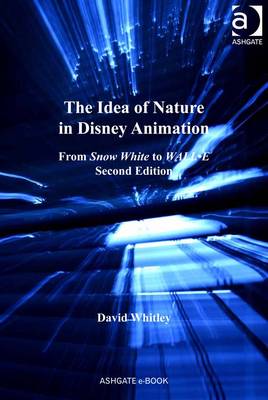Studies in Childhood, 1700 to the Present
1 total work
In the second edition of The Idea of Nature in Disney Animation, David Whitley updates his 2008 book to reflect recent developments in Disney and Disney-Pixar animation such as the apocalyptic tale of earth's failed ecosystem, WALL-E. As Whitley has shown, and Disney's newest films continue to demonstrate, the messages animated films convey about the natural world are of crucial importance to their child viewers. Beginning with Snow White, Whitley examines a wide range of Disney's feature animations, in which images of wild nature are central to the narrative. He challenges the notion that the sentimentality of the Disney aesthetic, an oft-criticized aspect of such films as Bambi, The Jungle Book, Pocahontas, Beauty and the Beast, and Finding Nemo, necessarily prevents audiences from developing a critical awareness of contested environmental issues. On the contrary, even as the films communicate the central ideologies of the times in which they were produced, they also express the ambiguities and tensions that underlie these dominant values. In distinguishing among the effects produced by each film and revealing the diverse ways in which images of nature are mediated, Whitley urges us towards a more complex interpretation of the classic Disney canon and makes an important contribution to our understanding of the role popular art plays in shaping the emotions and ideas that are central to contemporary experience.
